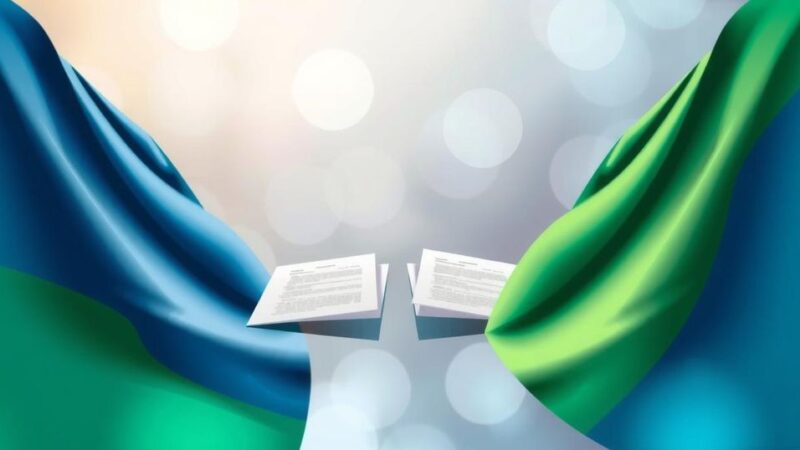The M23 rebels in eastern Congo declared a unilateral ceasefire to facilitate humanitarian efforts, following the deaths of over 900 individuals in recent clashes. They expressed no ambition to advance into Bukavu and pledged to protect civilians. This ceasefire aligns with upcoming regional peace discussions. The conflict’s historical and ethnic dimensions complicate efforts for lasting peace, with families suffering immense losses as they navigate the unfolding crisis.
On Monday, the Rwanda-backed M23 rebels, who recently took control of Goma, a pivotal city in eastern Congo, declared a unilateral ceasefire starting Tuesday. This decision aimed to facilitate humanitarian efforts amid alarming reports from the UN health agency, which stated that the fighting had resulted in at least 900 fatalities, surpassing earlier government figures of 776. The rebels’ move followed urgent requests for safe corridors to assist hundreds of thousands of displaced individuals struggling amidst escalating violence in the region.
The M23 rebels assert they have no intentions of advancing further into Bukavu, another provincial capital, despite previously expressing ambitions to reach the Congolese capital situated over a thousand miles away. Spokesman Lawrence Kanyuka emphasized their commitment to protecting civilians and upholding their positions in Goma. As the ceasefire announcement coincides with a forthcoming regional summit, it is anticipated that discussions will center around the ongoing conflict and strategies for peace.
The turmoil in eastern Congo, rich in valuable minerals, has driven countless individuals to flee. Many have crossed into Rwanda amid fears of violence, joining the already displaced due to the ongoing conflict. The M23 rebels, reportedly supported by around 4,000 Rwandan troops according to U.N. sources, dominate the skirmishes against government forces, capitalizing on the chaotic landscape shaped by historical ethnic tensions.
Hutus, who fled to Congo after the 1994 Rwanda genocide, are said to have blended into the Congolese military, a point of contention in the current conflict. As bodies are being recovered, families await news of loved ones amidst the chaos; they are grappling with their losses and the reality of violence that has engulfed their lives in Goma.
Chiza Nyenyezi recounted the horrific loss of her son, reflecting the personal toll the conflict has exacted on families in the region. Observers note the importance of resolving these disputes within the framework of formerly established peace agreements, amidst ongoing international pressure for dialogue. Neither the Congolese government nor the M23 rebels have publicly commented on the feasibility of such discussions.
The ongoing conflict in eastern Congo is marked by a complex interplay of ethnic strife, historical grievances, and the geopolitical interests of neighboring Rwanda. The M23 rebels emerged as a significant force in this turmoil, claiming to protect the ethnic Tutsi population from perceived threats posed by Hutu militias and remnants of groups responsible for the 1994 Rwandan genocide. The mineral-rich region, plagued by instability, has seen numerous armed factions competing for control, exacerbating the humanitarian crisis affecting millions of civilians. The recent escalation of violence has prompted international calls for ceasefires and dialogue to mitigate further displacement and suffering.
In summary, the announcement of a ceasefire by the M23 rebels represents a critical juncture in the ongoing conflict in eastern Congo. With significant loss of life reported and an urgent need for humanitarian assistance, the situation remains precarious. The challenges in addressing the root causes of conflict highlight the complexity of the issues at play, especially regarding ethnic tensions and regional political dynamics. Family tragedies underscore the human cost of warfare, pressing the necessity for effective conflict resolution efforts.
Original Source: apnews.com






